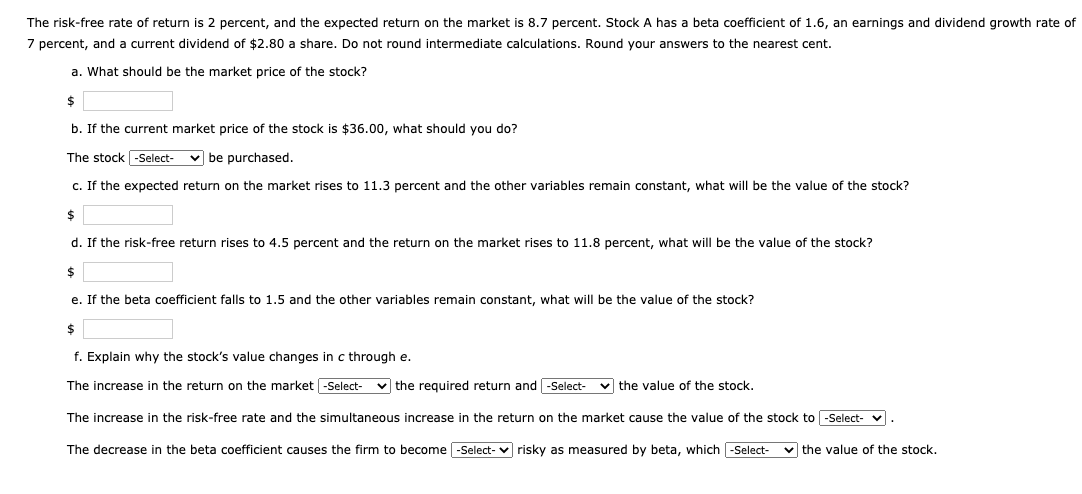Answered step by step
Verified Expert Solution
Question
1 Approved Answer
The risk-free rate of return is 2 percent, and the expected return on the market is 8.7 percent. Stock A has a beta coefficient

The risk-free rate of return is 2 percent, and the expected return on the market is 8.7 percent. Stock A has a beta coefficient of 1.6, an earnings and dividend growth rate of 7 percent, and a current dividend of $2.80 a share. Do not round intermediate calculations. Round your answers to the nearest cent. a. What should be the market price of the stock? b. If the current market price of the stock is $36.00, what should you do? The stock -Select- v be purchased. c. If the expected return on the market rises to 11.3 percent and the other variables remain constant, what will be the value of the stock? d. If the risk-free return rises to 4.5 percent and the return on the market rises to 11.8 percent, what will be the value of the stock? e. If the beta coefficient falls to 1.5 and the other variables remain constant, what will be the value of the stock? 2$ f. Explain why the stock's value changes in c through e. The increase in the return on the market -Select- v the required return and -Select- v the value of the stock. The increase in the risk-free rate and the simultaneous increase in the return on the market cause the value of the stock to -Select- v. The decrease in the beta coefficient causes the firm to become -Select- v risky as measured by beta, which -Select- v the value of the stock.
Step by Step Solution
★★★★★
3.57 Rating (150 Votes )
There are 3 Steps involved in it
Step: 1
ans a market price of stock next year dividendequity return growth rate equity ret...
Get Instant Access to Expert-Tailored Solutions
See step-by-step solutions with expert insights and AI powered tools for academic success
Step: 2

Step: 3

Ace Your Homework with AI
Get the answers you need in no time with our AI-driven, step-by-step assistance
Get Started


